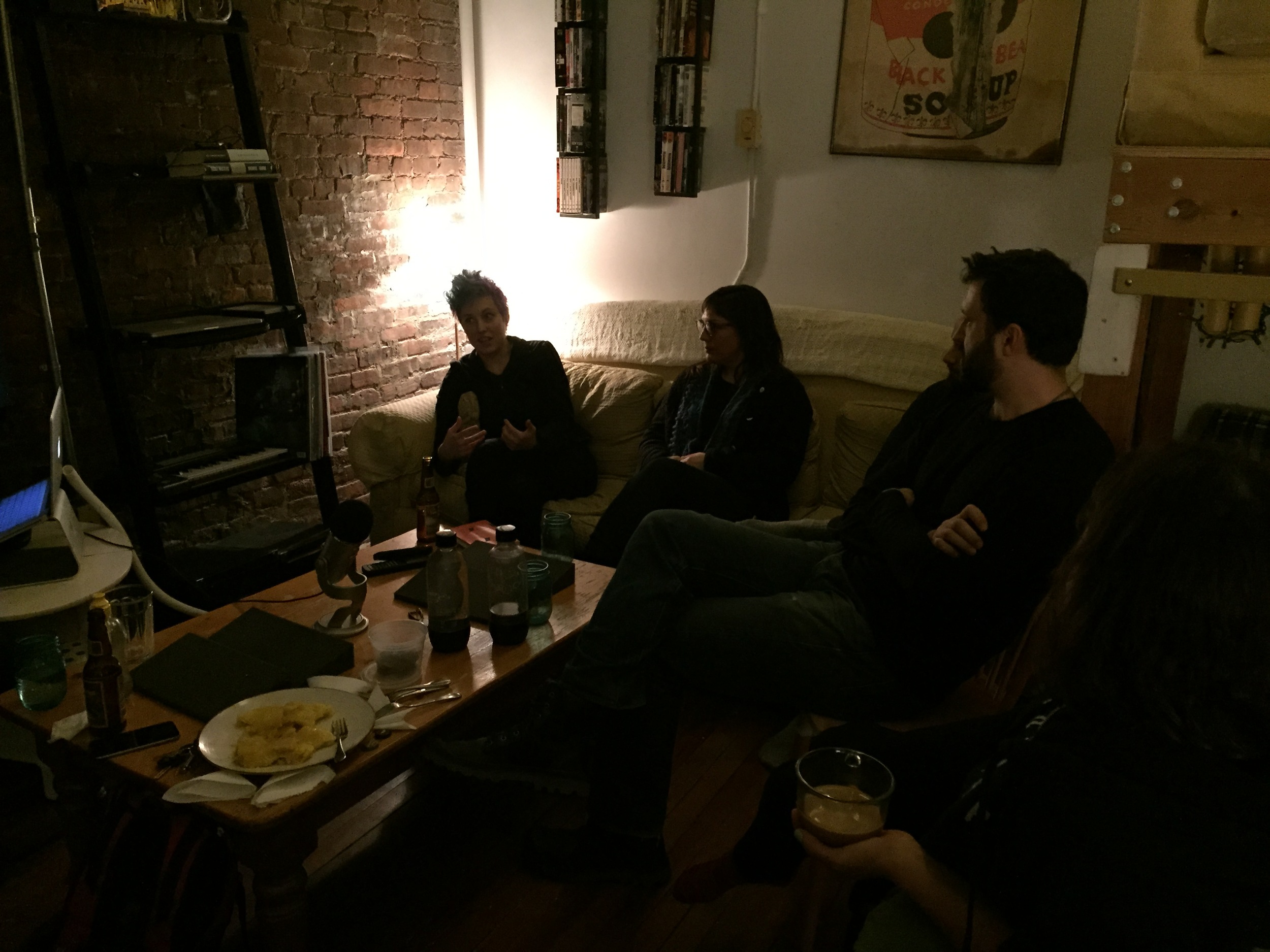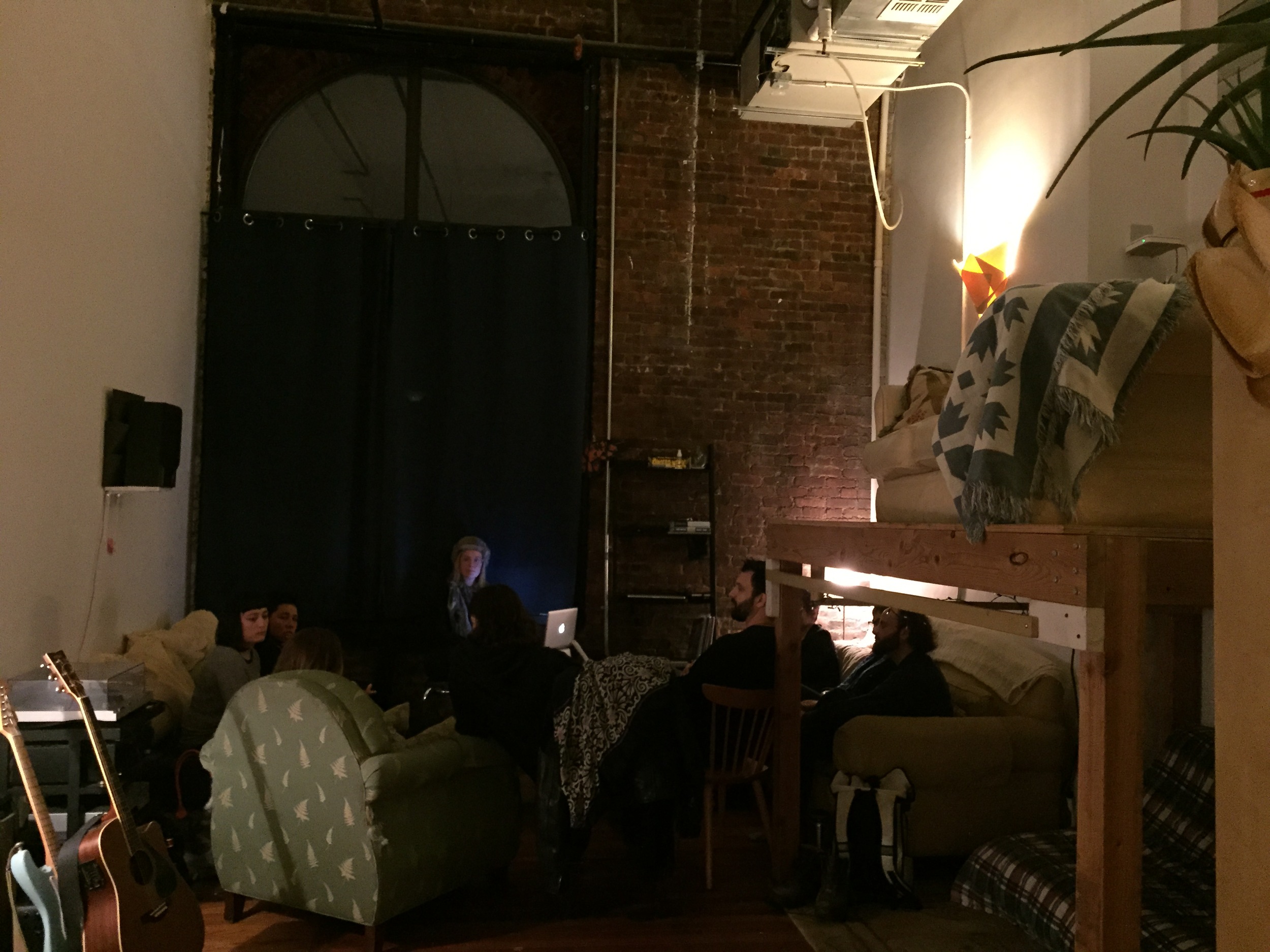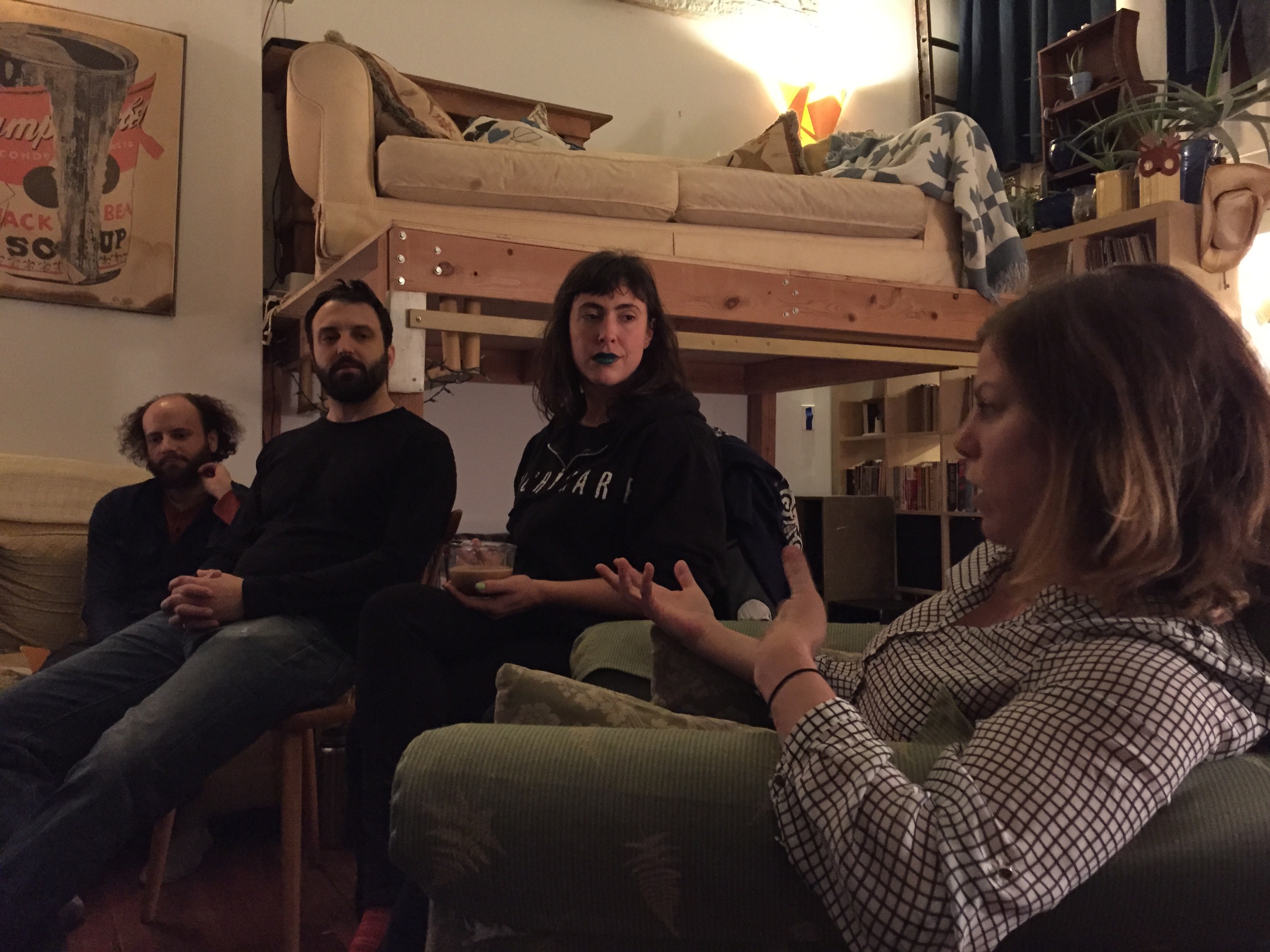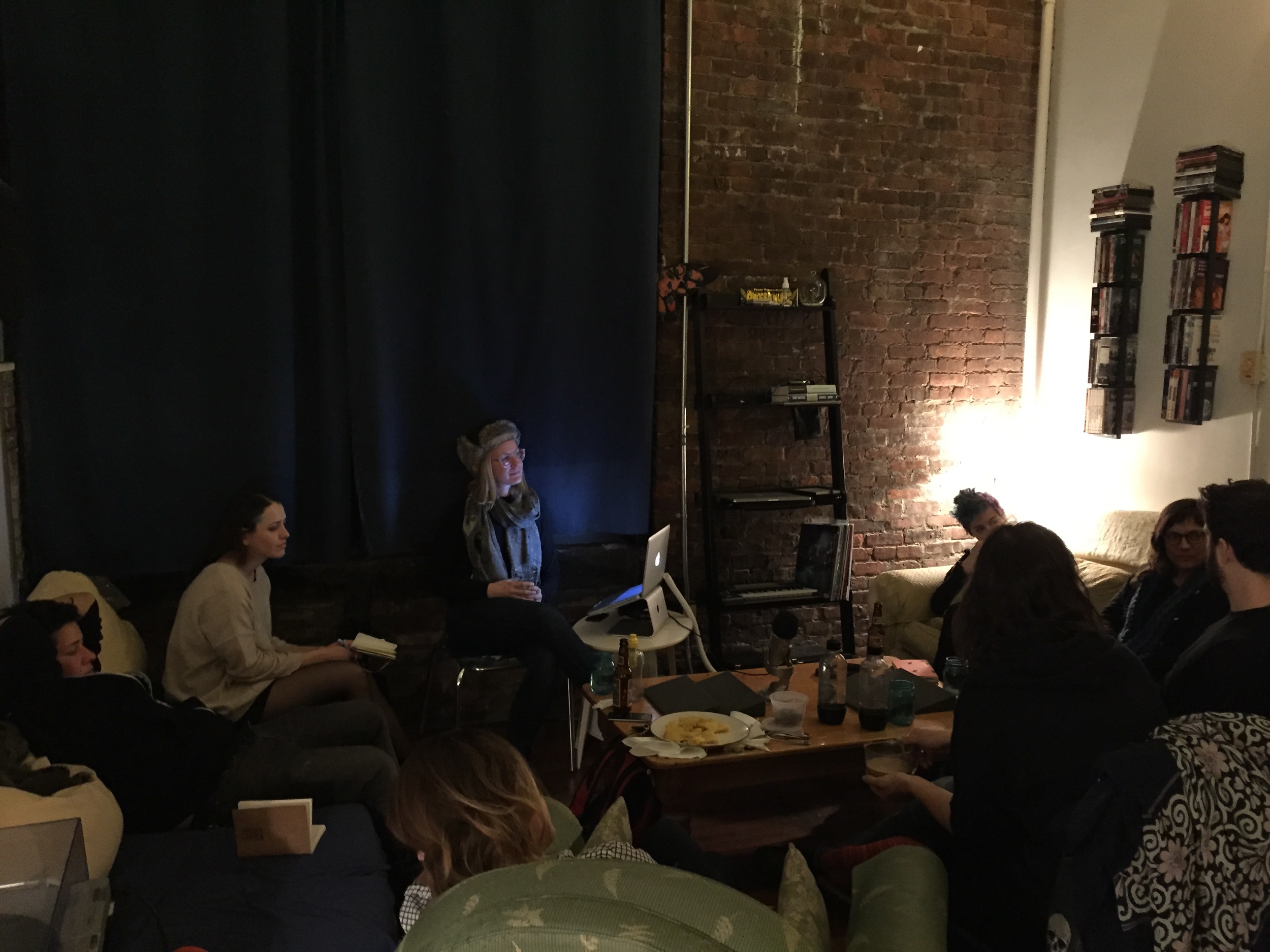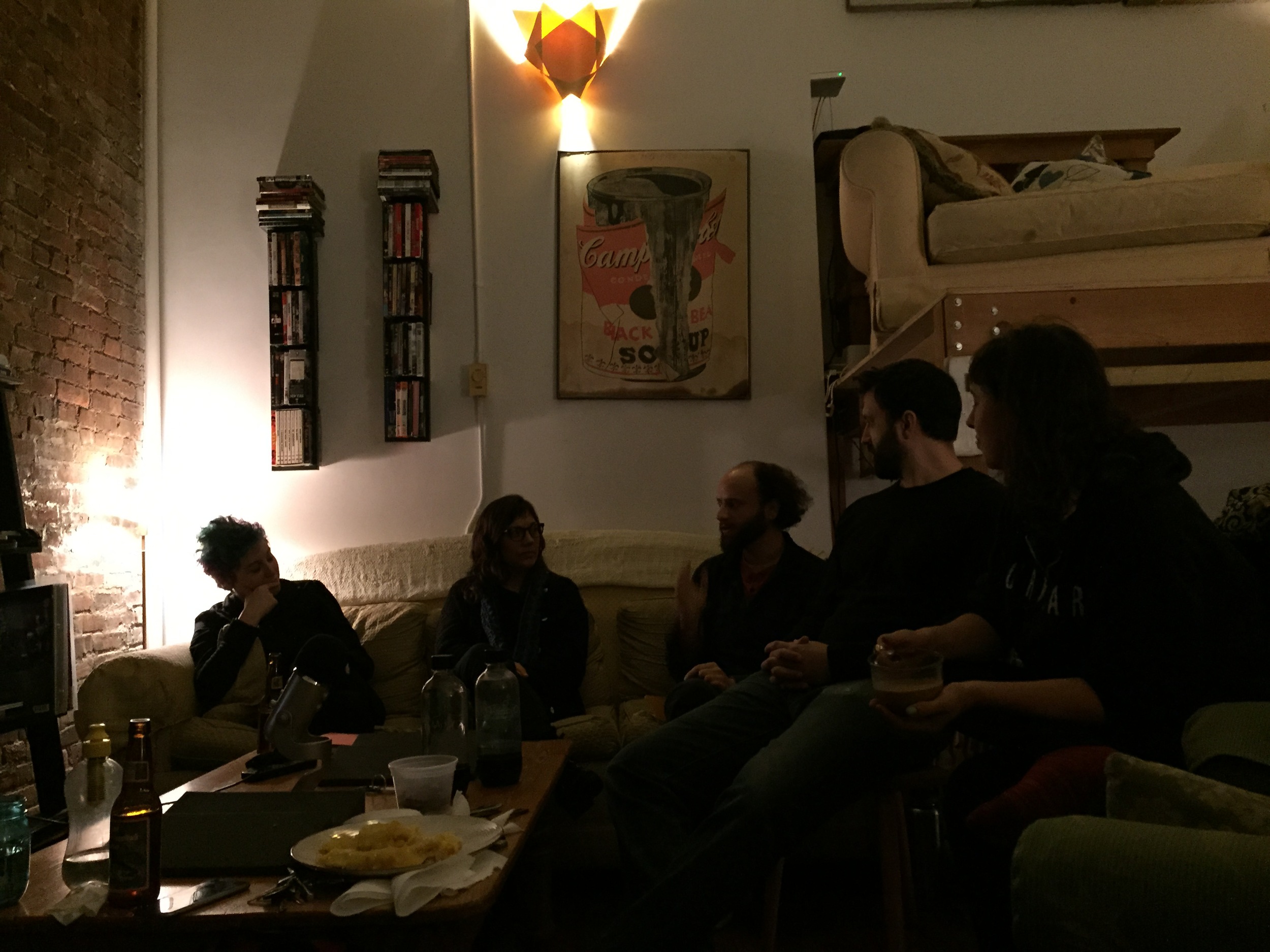Please allow 30 seconds for the audio to load
- What is meaning?
- Is how meaning constructed fair?
- Do artists need to justify their work?
Nicole Brydson begins the discussion by asking the broad question “what is meaning?” to gauge how the contributors will respond to the loaded question. The conversation gets in-depth right away as Ester Neff describes how meaning is relational and is something that has an affect or is affective. Victoria Valencia explains how meaning cannot exist without purpose which Ester rebuttals by discussing how purpose has a functionality and is a capitalist form of intention while meaning is related to a sensory experience and less functional. The conversation begins to take a turn toward the relationship between art and media. Mindy Abovitz decribes the broad term of media as a prepared message in a specific platform. We begin to discuss how meaning is mediated through the sources that create media. For instance, Eric Farber describes how media generators are controlled by a few small groups of people even though there is an illusion of democracy within this system. We see how the messages we receive that translate into certain types of meanings for us can be manipulated and prepared in specific ways. We begin to talk about how this relates to artists creating work and the pressure from an audience to justify this work. Rae Goodman explains that she is happy to talk about her work with an audience but the communication is the work itself and the translation of it into words can never speak louder than the work. Eric Farber talks about how the audience may know more about the work than the artist does and having to justify the work sometimes becomes problematic if the artist is incorrect. He mentions that the intention that an artist had in preparation for the work can put them on a pedestal away from the audience.

